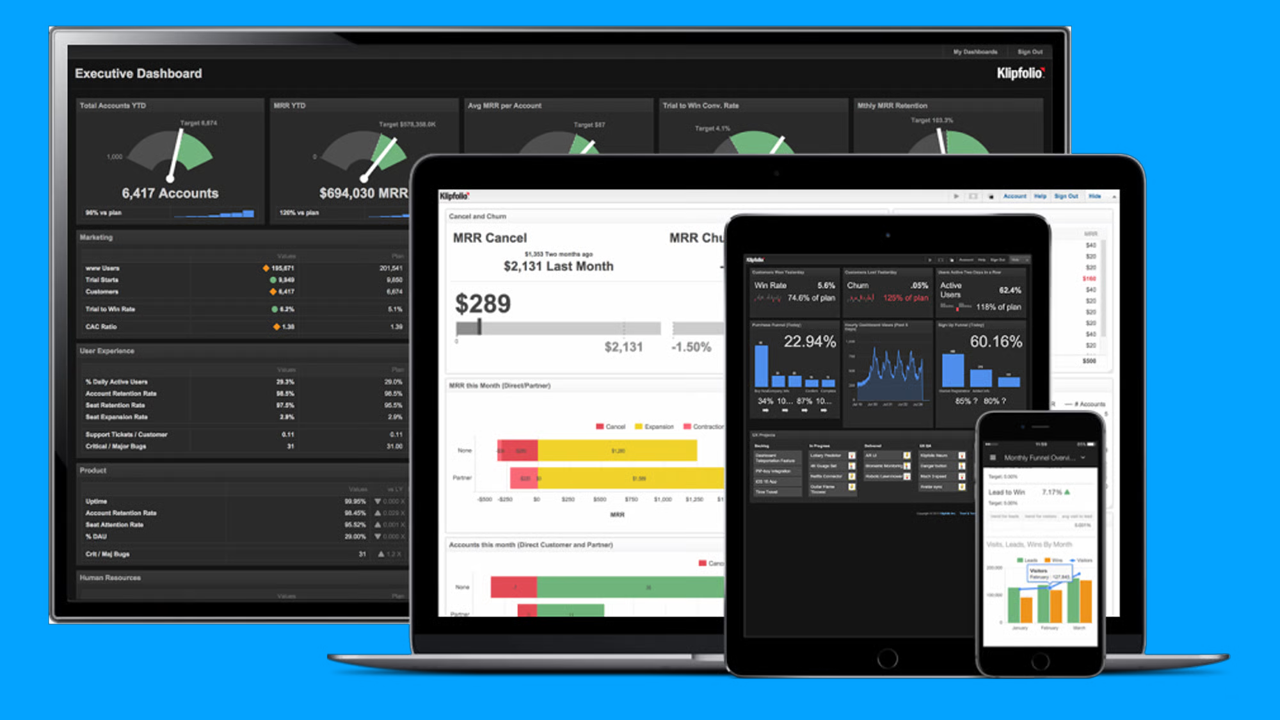
Affiliate marketing in 2026 will see a reshaping of how businesses connect with customers through the affiliate ecosystem, driven by deeper AI-powered personalization, evolving regulatory frameworks, and the maturation of social commerce ecosystems. Trends affecting the field in 2025 will carry over into 2026 — AI-driven content, real-time decisioning, and novel marketing formats are all redefining strategies and practices across the industry.
With projected spend reaching $13.2 billion in the US alone, and may of the barriers to initial entry coming down, competition is likely to rise — affiliate marketers in 2026 will have to navigate technological advancement while building sustainable partnerships that deliver measurable growth across increasingly complex customer journeys.
Introduction to Affiliate Marketing
Affiliate marketing is a performance-based digital marketing strategy where individuals or businesses, known as affiliates, earn commissions by promoting products or services offered by other companies. This approach has become a cornerstone for businesses looking to expand their reach, increase revenue, and drive sales without significant upfront investment.
By leveraging affiliate marketing strategies, companies can connect with new target audiences through a network of partners who specialize in promoting products across various channels.
Affiliate networks play a pivotal role in this ecosystem, acting as intermediaries that connect advertisers with affiliates and streamline the process of tracking, reporting, and payment. Through well-structured affiliate programs, businesses can tap into the power of influencer marketing, social commerce, and content-driven campaigns to reach highly engaged audiences.
This collaborative model not only benefits brands by boosting visibility and sales but also empowers affiliates to build sustainable businesses by monetizing their platforms and expertise. As affiliate marketing continues to evolve, it is more and more attractive a way for businesses and affiliates alike to drive growth and stay competitive in the digital landscape.
Technology Revolution: The New Digital Infrastructure
AI Integration and Automation
AI driven changes are already in full swing on multiple fronts. The question is, which will gain momentum, following the hype awash in the market, and which keep a steady pace or slow down?
Targeting and tracking
Artificial intelligence will continue to transform targeting and tracking. AI-powered predictive analytics can already achieve 85% accuracy in identifying high-intent users likely to convert — a specific capability that supplements broader campaign optimization. Next year, machine learning algorithms will improve targeting precision and audience segmentation, though overall performance improvements will likely vary by use case and campaign complexity, typically delivering 15-25% ROI improvements over non-optimized campaigns.
Production and response timelines
AI-driven content generation genuinely reduces production timelines from hours to minutes, enabling affiliate marketers — for instance — to create customized ad creatives across multiple channels and languages at scale and low cost. As AI-powered chatbots handle preliminary customer interactions and lead qualification throughout the sales funnel, we can see emerging a "conversational commerce" that responds to user intent with increasing sophistication and washes away much of the frustration that builds with customer isolation. However, affiliates must balance automation with authenticity — over-reliance on rapidly generated content off all kinds risks audience skepticism and brand misalignment.
Predictive analytics
Predictive analytics are already evolving fast: right now, AI-powered tools forecast seasonal trends and optimize inventory-based affiliate promotions with moderate success, while smart bid management systems adjust commission rates based on lifetime customer value predictions. This evolution will continue into 2026, allowing affiliate partners to focus on relationship building and strategic positioning rather than manual campaign management, creating competitive advantage through data-informed strategies.
Content generation
The ongoing democratization of content production through generative AI represents affiliate marketing’s most transformative shift heading into 2026. With nearly 79% of affiliate marketers already embracing AI-driven content creation, these tools have shifted from novelty to essential infrastructure. AI now generates blog post outlines, email sequences, landing page copy, and video scripts in fractions of previous average times — thus fundamentally changing how creators scale from managing single products to maintaining portfolios of dozens.
Meanwhile, AI tools analyze publisher data and recommend optimal placement of affiliate links, automatically integrating tracked links into content at scale, which removes one of affiliate marketing’s traditional friction points: manually building up funnels for multiple brands. This capability levels the playing field, enabling solo affiliates to compete with established agencies by automating what previously required dedicated content teams.
However, 2026 will expose the limits of pure automation as market saturation increases. While AI excels at generating first drafts, SEO optimization, and bulk content production, success increasingly depends on human editorial judgment and brand authenticity. Search algorithms are evolving to reward AI-generated content that incorporates genuine expertise and user-focused value rather than keyword-stuffed variations.
The affiliate marketers thriving in 2026 will be those using AI as a production accelerator while investing human effort in fact-checking, tone refinement, disclosure compliance, and original perspective. Brands and audiences are becoming more skeptical of purely algorithmic content; the competitive advantage shifts from “who can produce the most content fastest” to “who can combine AI efficiency with credible human authority.”
Geo-localized and hyper-personalized content
These represent AI’s next frontier for affiliate marketing. By 2026, AI will leverage location data and behavioral signals to create region-specific variations of content automatically — tailoring product recommendations, pricing angles, and cultural references to different markets without manual intervention. This approach directly addresses the affiliate challenge of reaching fragmented global audiences.
AI-powered email sequences and landing pages will dynamically personalize based on user segment, browsing history, and purchase intent, enabling affiliates to run sophisticated nurture campaigns that rival traditional performance marketing teams. Voice-based conversational commerce through supports like Alexa and Google Assistant integration will further expand AI’s role, allowing affiliates to optimize for voice search and voice-driven product discovery — an emerging channel where early adopters will capture disproportionate market share before competition intensifies.
Advanced Attribution Systems

Some assessments make bold claims on server side tracking: that it could replace cookie-based attribution with 95% accuracy by Q2 2026, addressing privacy concerns while providing better data for transparent reporting.
More likely? Server side tracking evolves as complementary solution to privacy-challenged cookie-based attribution, achieving 60-65% accuracy in optimal conditions by mid-2026. This represents meaningful improvement over last-click attribution models (which deliver 15-25% accuracy gains), though perfect attribution remains unrealistic due to device fragmentation and privacy regulations.
Leading platforms like Digistore24 already implement hybrid approaches combining server-side tracking with first-party data collection to bridge accuracy gaps. While server-side implementations reduce reliance on third-party cookies and improve privacy compliance, affiliate marketers should expect accuracy ranges between 50-70% depending on implementation sophistication and traffic sources.
Cross-device identity resolution continues evolving but faces persistent technical limitations, connecting customer journeys across 3-5 touchpoints where data permits. Traditional 30-60 day payment delays persist across most affiliate networks, though progressive platforms like Digistore24 offer accelerated payouts (3 times weekly) through advanced reconciliation systems.
Cross-device identity resolution connects customer journeys across 5+ touchpoints, allowing affiliate managers to not only understand how customers interact with affiliate products through multiple touchpoints before conversion, but also manage multiple promotion streams and ensure accurate tracking across all channels. Incrementality measurement becomes standard practice, with A/B testing integrated into attribution models to separate genuine affiliate influence from organic sales.
Real-time commission calculations transform revenue sharing models, enabling dynamic commission structures that reward affiliates based on actual customer value rather than flat-rate payments. Affiliates get paid through various payout structures, such as CPA, CPL, or revenue share, with accurate tracking being essential to ensure correct and timely payments. This evolution particularly benefits affiliate marketers promoting products in competitive verticals where customer lifetime value varies significantly.
Platform Innovation and Integration

Key platform developments reshape how affiliate traffic flows through digital ecosystems. TikTok Shop expands to 15+ countries with integrated affiliate creator programs, while YouTube introduces shoppable video overlays with direct checkout capabilities that eliminate friction between content consumption and purchase decisions. Affiliates earn commissions when a sale is completed through their tracked links, making it crucial to drive actual purchases for success.
Instagram implements AI-powered product discovery through affiliate content, using machine learning to surface relevant affiliate products based on user behavior patterns. LinkedIn launches B2B affiliate marketplace for software and business services, recognizing the growing importance of affiliate channels for digital products and enterprise sales.
Emerging platforms are already creating or finding untapped markets for affiliate marketers willing to pioneer new interactive content formats. These platform innovations enable affiliates to connect directly with audiences in environments optimized for building trust and driving conversions.
Affiliate Networks and Programs

Affiliate networks and programs are the backbone of modern affiliate marketing strategies, serving as the vital link between brands and affiliate marketers in an increasingly complex digital ecosystem. As we look toward 2026, the role of these networks and programs is more critical than ever, enabling businesses to expand globally, increase revenue, and achieve long-term success through scalable, data-driven partnerships.
A robust affiliate program provides the infrastructure for brands to connect with highly engaged audiences, leveraging a diverse array of affiliate channels — from influencer marketing and media partners to content creators and micro-influencers. Leading affiliate networks and platforms will continue to empower affiliate managers to optimize campaign performance, monitor affiliate traffic, and ensure measurable growth across multiple touchpoints.
Staying ahead in the future of affiliate marketing means prioritizing trust and authenticity. Successful affiliate marketers focus on building trust with potential customers by delivering personalized content that aligns with user intent and consumer behavior. As noted above, AI-driven personalization is rapidly becoming a standard, allowing affiliates to tailor promotions and interactive content to specific target audiences, thereby boosting conversion rates and increasing revenue.
When evaluating affiliate networks and programs, it’s essential to consider factors such as commission rates, revenue sharing models, payout structures, and the quality of tracking technology. Look for networks that offer server-side tracking and first-party data solutions, ensuring better data accuracy and compliance with evolving privacy standards. Transparent reporting and dynamic performance strategy tools are also key for affiliates seeking a competitive edge and sustainable growth.
Influencer partnerships and video-first strategies are reshaping how affiliate products are promoted, especially as social commerce and mobile traffic continue to dominate. By collaborating with affiliates who have highly engaged audiences, brands can connect directly with potential customers in untapped markets and key platforms, driving campaign performance and long-term success.
For both new and experienced affiliate marketers, joining reputable affiliate networks unlocks a wealth of resources — from training and marketing materials to advanced tools for optimizing campaigns and expanding globally. As affiliate marketing trends continue to evolve, staying informed about the latest developments in affiliate networks, ad networks, and campaign management is essential for building trust, increasing sales, and achieving measurable growth in the AI era.
By focusing on strategic partnerships, leveraging artificial intelligence, and adopting transparent, data-driven approaches, affiliate marketers and brands can stay ahead of the curve and secure a sustainable, competitive edge in the future of affiliate marketing.
Traffic Sources
The success of any affiliate marketing campaign hinges on the quality and diversity of its traffic sources. Affiliate marketers rely on a mix of channels to attract potential customers, including social media platforms, email marketing, search engine optimization (SEO), and paid advertising. Each traffic source offers unique advantages, allowing affiliates to reach highly engaged audiences and maximize their campaign’s impact.
Mobile traffic has emerged as a dominant force in affiliate marketing, and will continue to do so with greater force and accessibility of data. More consumers are — of course — browsing and shopping on their smartphones than ever before. Affiliates who optimize their campaigns for mobile devices can tap into this growing segment, ensuring their content and offers are accessible and appealing to users on the go. By analyzing user behavior and understanding what motivates their target audiences, affiliate marketers can tailor their strategies to drive measurable growth and boost conversion rates.
Email marketing remains a powerful tool for nurturing relationships and delivering personalized offers directly to potential customers; this is likely to remain stable looking ahead. Meanwhile, paid advertising and SEO help affiliates capture intent-driven traffic, ensuring their campaigns reach the right people at the right time. By leveraging a diverse range of traffic sources and staying attuned to evolving consumer preferences, astute affiliates will harness traffic in an increasingly competitive environment.
Digital Products and Affiliate Marketing
Digital products have revolutionized the affiliate marketing landscape, offering affiliates a wealth of opportunities to promote and earn commissions on a global scale. From e-books and online courses to software solutions and subscription-based services, digital products are ideally suited for promotion and consumption. With the ability to tailor and generate content at scale getting a boost along with the tools to promote it, expect niche digital products to continue to rise in the affiliate sphere.
Affiliate platforms that specialize in digital products — like Digistore24 — provide affiliates with access to a vast selection of offerings and advanced tools to support their promotional efforts. These platforms make it easy for affiliates to find products that align with their niche and audience interests, enabling them to build sustainable online businesses and expand their reach internationally.
The appeal of digital products lies in their scalability and instant delivery, allowing affiliates to connect with customers worldwide without the limitations of physical inventory. By leveraging the right affiliate channels and marketing tools, affiliates can effectively promote digital products, drive conversions, and generate recurring revenue streams that support long-term business growth.
Regulatory Framework: Compliance and Governance

Privacy Compliance Evolution

The EU Digital Services Act implementation requires full transparency in affiliate disclosure by January 2026, fundamentally changing how affiliate programs operate across international markets. The California Privacy Protection Act expands CCPA requirements to affiliate marketing tracking, while the UK Digital Markets Act establishes new consent requirements for affiliate data collection.
Global GDPR-style regulations adopted in 8+ additional countries affect international campaigns, making first party data collection mandatory with 90-day retention limits. Policy makers increasingly focus on consumer protection, requiring affiliate marketers to implement robust consent management and data governance practices.
These regulatory changes accelerate the transition to first-party data strategies, forcing affiliate networks to develop compliant tracking methodologies that maintain campaign performance while respecting user privacy. Affiliate marketers who stay ahead of these requirements gain sustainable growth advantages over competitors struggling with compliance.
Platform Governance Changes

Meta implements mandatory creator disclosure tags for all affiliate content by March 2026, while Google Ads requires certified affiliate program verification for shopping campaigns. Amazon Associates introduces quality score requirements affecting commission tiers, rewarding affiliates who consistently drive high-value customers.
TikTok standardizes 15% platform fee structure across all in-app affiliate transactions, creating predictable cost structures for brands planning social commerce strategies. YouTube Creator Fund integrates performance-based payouts linked to affiliate conversion quality, aligning creator incentives with long term success metrics. Additionally, different affiliate marketing platforms pay affiliates through a variety of payout structures and commission rates, allowing marketers to choose programs that best match their earning goals.
These governance changes favor professional affiliate marketers who prioritize transparent reporting and genuine customer value over short-term traffic generation tactics. Successful affiliates adapt by focusing on building authentic influencer partnerships that comply with platform requirements while delivering superior campaign performance.
Attribution Standards

Industry-wide adoption of 7-day click, 1-day view attribution windows replaces longer tracking periods, creating more accurate measurement of affiliate influence while respecting user privacy preferences. The IAB establishes standardized affiliate disclosure formats across all digital platforms, simplifying compliance for affiliate managers working across multiple channels.
The FTC requires machine-readable disclosure codes for automated compliance monitoring, while cross-platform attribution sharing agreements between major social media networks enable better understanding of customer journeys. Mandatory fraud detection systems with 99.5% accuracy requirements protect legitimate affiliate partners from illegitimate competition.
These standardization efforts create clearer guidelines for affiliate marketing trends while establishing trust between brands, affiliates, and consumers. Marketers benefit from reduced compliance complexity and more accurate performance measurement across diverse traffic sources.
Market Transformation: Growth Patterns and Opportunities
High-Growth Markets

Southeast Asia experiences 25% CAGR with mobile-first affiliate strategies dominating, as mobile traffic becomes the primary source of affiliate conversions. Latin America shows 18% growth driven by fintech and travel affiliate partnerships, creating opportunities for affiliate marketers focused on emerging digital economies.
India’s affiliate market expands 22% annually with vernacular content and regional micro influencers delivering exceptional conversion rates among local audiences. The Middle East emerges with 20% growth in luxury goods and travel affiliate programs, while Africa develops mobile money integration with affiliate cashback programs in 12 countries.
These markets prioritize authentic, culturally relevant content that resonates with local consumer behavior patterns. Successful expansion requires understanding regional preferences, payment methods, and social media usage patterns that differ significantly from mature Western markets.
Mature Market Evolution

North America shifts from growth to optimization with 8% steady CAGR, focusing on higher average order values rather than volume expansion. Affiliate programs emphasize quality partnerships with established influencers and content creators who demonstrate consistent performance over time.
Western Europe emphasizes quality over quantity with premium brand affiliate partnerships, while Australia and New Zealand develop specialized B2B affiliate networks for enterprise software sales. Japan integrates traditional retail with digital affiliate programs through QR code campaigns that bridge offline and online customer experiences.
South Korea leads in social commerce integration with live streaming affiliate sales, demonstrating how mature markets can innovate within established frameworks. These markets reward affiliate marketers who understand sophisticated audiences and can deliver personalized content that drives premium conversions.
Emerging Opportunities

Sustainability and ESG-focused affiliate programs grow 35% annually across all regions, reflecting shifting consumer values toward environmentally conscious purchasing decisions. Health and wellness verticals expand with telehealth and mental health affiliate partnerships, creating opportunities for affiliates who can navigate sensitive topics with appropriate expertise.
B2B SaaS affiliate networks specializing in AI tools and automation software create new revenue streams for technical content creators.
Voice assistants integration creates new touchpoints for affiliate marketing, as voice search optimization becomes essential for staying relevant in evolving search results. Immersive, one-on-one experiences facilitated by tools like chatbots, voice assistants, and AR interactions help build trust with customers and foster loyalty. These opportunities require early adoption and willingness to experiment with emerging technologies and consumer trends.
Strategic Continuity: Foundational Elements That Endure

Affiliate Marketing and Content Marketing Foundation
SEO-driven affiliate content maintains 65% of total traffic with enhanced E-E-A-T (Experience, Expertise, Authoritativeness, Trustworthiness) requirements that reward genuine product knowledge and user value. Long-form review content evolves to include video, interactive elements, and comparison tools that serve user intent more effectively than traditional text-based reviews.
Voice search optimization becomes essential with 40% of affiliate searches conducted via smart speakers, requiring affiliate marketers to adapt content for conversational queries. Multilingual content strategies expand to serve global audiences across 25+ languages, while user-generated content integration with affiliate programs drives authentic engagement.
Email marketing remains a cornerstone channel, with AI-powered segmentation enabling hyper-personalization at scale. Successful affiliate marketers maintain strong content foundations while adapting to new formats and distribution channels that reach target audiences more effectively.
Social Commerce Dominance

Short-form video content accounts for 70% of affiliate social media engagement, with video first strategies becoming mandatory for competitive performance. Live shopping events generate 45% higher conversion rates than traditional affiliate links, demonstrating the power of real-time customer interactions.
Micro-influencer partnerships with 1K-100K followers deliver 3x ROI compared to macro-influencers, as audiences increasingly value authentic recommendations over celebrity endorsements. Social listening tools identify trending products for real-time affiliate campaign optimization, enabling agile response to market opportunities.
Community-driven affiliate programs build loyal customer advocacy networks that generate sustained revenue beyond individual campaigns. These social commerce trends favor affiliate marketers who prioritize genuine relationship building and consistent value delivery over transactional promotion tactics.
Partnership Models

Performance-based partnerships replace fixed-fee arrangements with dynamic commission structures that align affiliate incentives with business outcomes. Exclusive affiliate arrangements increase as brands offer higher commissions for loyalty, creating opportunities for dedicated affiliate partners to build substantial recurring income streams.
Hybrid affiliate-influencer contracts combine reach metrics with conversion performance, recognizing that modern affiliate marketing requires both audience development and sales effectiveness. White-label affiliate programs enable brands to maintain direct customer relationships while leveraging affiliate expertise for market expansion.
Affiliate network consolidation creates specialized vertical-focused platforms for niche markets, allowing affiliate marketers to develop deep expertise in specific industries or customer segments. These partnership evolution trends reward focus, specialization, and long-term relationship building over broad-based promotional approaches.
Affiliate Marketing Education and Resources
For those eager to enter the world of affiliate marketing or elevate their existing campaigns, a wealth of education and resources is available to support every step of the journey. Step-by-step guides, online courses, webinars, and industry events provide valuable insights into the latest strategies and best practices, helping affiliate marketers stay ahead in a rapidly evolving landscape.
Leading platform providers such as Scaleo and Vellko offer advanced affiliate software and tools designed to streamline campaign management, track performance, and optimize results. Ad networks and media partners open doors to untapped markets and highly engaged audiences, giving affiliates the opportunity to expand their reach and connect with new customer segments.
By leveraging these resources and maintaining a focused approach, affiliate marketers can build successful, future-ready businesses that thrive in the dynamic world of digital marketing. Staying informed, embracing innovation, and cultivating strong partnerships are key to achieving long-term success and securing a competitive edge in the future of affiliate marketing.
Conclusion: Adaptability is Key
Securing a place in the affiliate marketing world in 2026 demands strategic thinking, technological adaptation, and authentic relationship building. Success requires balancing innovation with proven fundamentals, regulatory compliance with growth ambitions, and automation with human insight. Affiliate marketers who embrace these changes while maintaining focus on genuine customer value will thrive in this transforming landscape.






